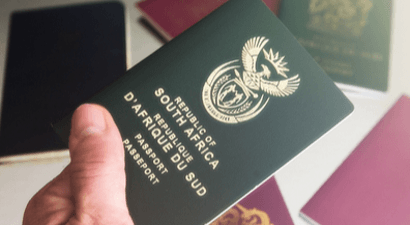Are Asylum Seekers and Refugees Legally Entitled to Claim Social Security in South Africa?
In the recent unreported 2017 Equality Court case of Saddiq v Department of Labour and Others (Case number: EQ 04/2017), an Asylum Seeker who had been in South African for approximately six years and who was employed by the same employer for two and a half years when his employment terminated, approached the court to enforce a claim for his UIF benefits and for damages flowing from a rejection of his claims by the Department of Labour. The Department of Labour had failed, refused and/or neglected to pay him because its system requires a valid South African identity document or a passport from his country of origin (which Saddiq did not have) to process the payments.
Refugees in this country are issued with reference numbers when they apply for status as Asylum Seekers pending the outcome of their Refugee status applications. If they proceed to obtain a passport from their estranged country, they will, in terms of Section 5(1)(a) of the Refugee Act, 1998, lose their Asylum Seekers or Refugee status in South Africa.
South Africa is a signatory of the United Nations Convention Relating to the Status of Refugees and the Organization of African Unity’s Convention Governing the Specific Aspects of Refugee Problems in Africa, both of which provide that the Refugees in a host country must be treated the same as the citizens of that country. According to their permit conditions, Refugees are (usually) entitled to seek employment. Employed persons within South Africa are legally required in terms of the Unemployment Insurance Act, 2001 and the Unemployment Insurance Contributions Act, 2002 to make a monthly contribution from their salaries to the government’s Unemployment Insurance Fund (“UIF”).
The Equality court in Saddiq was seized with the issue of whether the Department of Labour’s refusal to pay the Asylum Seeker his UIF, despite having accepted his UIF contributions, was in effect an abuse of his right to dignity. Due to the fact that this court has a lower status than a High Court, it was unable to pronounce on the constitutionality of the Department of Labour’s conduct (to do so would have been contrary to Section 170 of the Constitution). Instead, the Equality Court in Vereeniging applied Section 13(2)(a) of the Promotion of Equality and Prevention of Unfair Discrimination Act, which provides that if a discrimination did take place on a prohibited ground then it is patently unfair, unless the discrimination can be proved to be fair. Prohibited grounds include race, gender, sex, pregnancy, marital status, ethnic or social origin, colour, sexual orientation, age, disability, religion, conscience, belief, culture, language, birth, and any ground where the discrimination causes or perpetuates systematic disadvantage, undermines human dignity or adversely affects the equal enjoyment of a person’s rights and freedoms in a serious manner that is comparable to discrimination. There was no appearance by the Department of Labour to disprove the evidence led by the Asylum Seeker, so the court pronounced that the Department of Labour’s conduct was unfair and discriminatory toward the Asylum Seeker, on the basis of a systematic disadvantage. The court ordered the Department of Labour to pay the Asylum Seeker the monies it owed him from the UIF, together with an award of damages claimed by him, a tendered apology and legal costs. In addition, the court ordered the Department of Labour to correct their computer systems to allow any asylum seeker who contributed to the fund to be compensated fairly, once their claims are lodged.
Upon investigation by this office, we have found that as at the date of publication of this article, Asylum Seekers or Refugees who are legally obliged to contribute to UIF will still not be able to access their UIF benefits in the normal course without a South African identity document or a valid passport. Rather than take immediate steps to fix its system causing the unfair and discriminatory conduct, the Department of Labour has unofficially placed all blame on the Department of Home Affairs.





